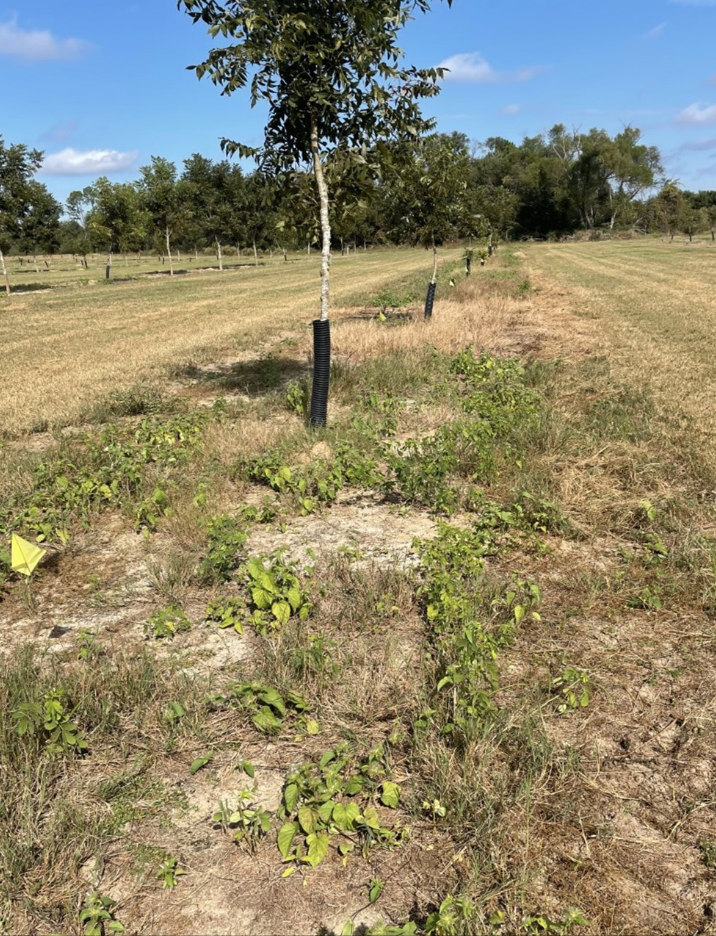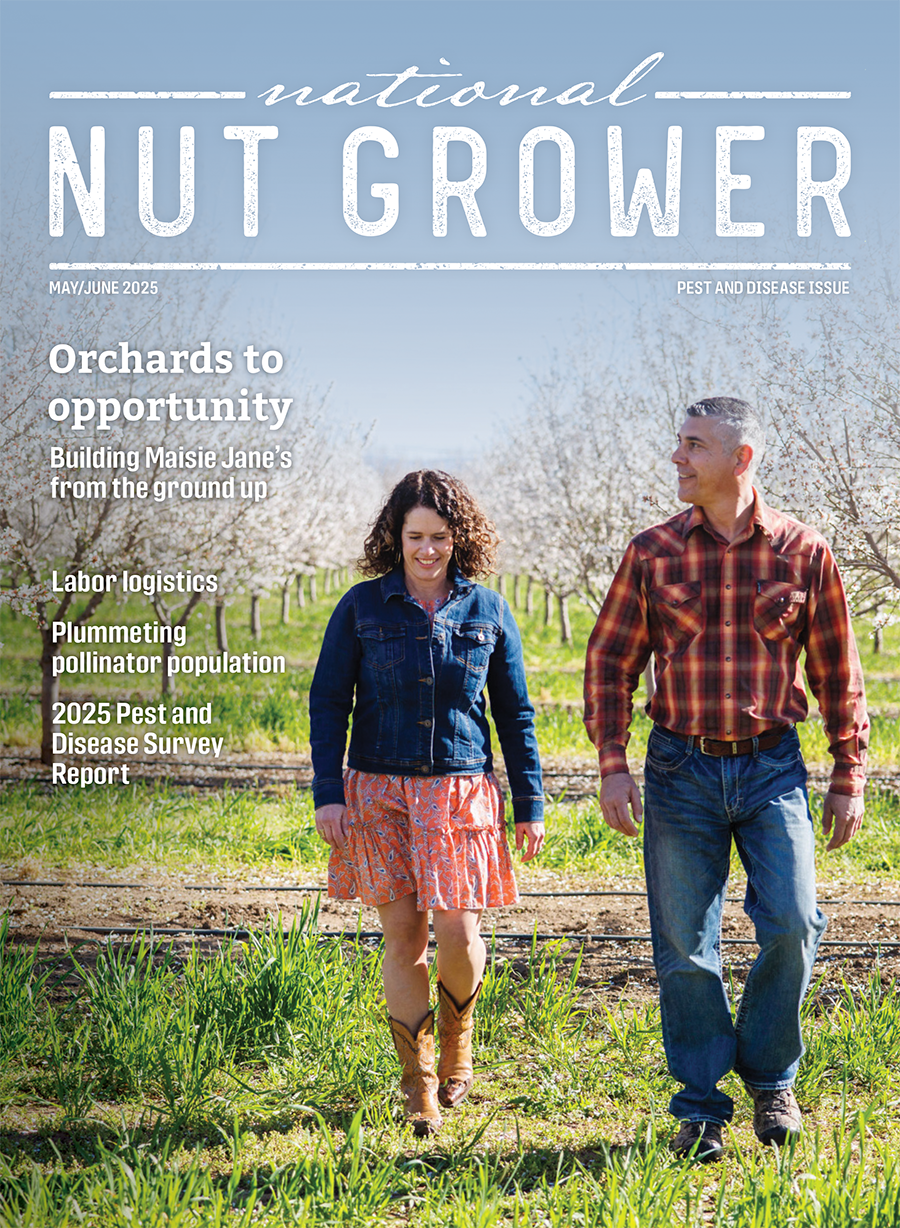
Sep 15, 2022Controlling bermudagrass in newly planted pecan orchards
Wilcox County, Georgia, is home to over 1,500 acres of pecan orchards in commercial production. Annually, we are seeing an increase in land use being converted to more commercial pecan production.
For newly planted trees, weed control and irrigation are the two primary management issues. Orchards planted in old pastures, hay fields, or areas where bermudagrass is common can see significant competition between this weed pest and young pecan trees.
Bermudagrass is a complex weed to manage. Due to bermudagrass spreading by the production of rhizomes, we are limited to post–emergent herbicides for control. Therefore, timeliness of post-emergent herbicide applications is key for successful control. The most effective time for control of a perennial weed like bermudagrass is late season, generally during September or October. During this time, bermudagrass is transporting photosynthate to its roots for dormancy, which increases the ability of the plant to translocate herbicides towards the roots.

To test this theory, we set up a simple test during late September of 2021 in a four–year–old pecan orchard that planted in a bermudagrass pasture. We utilized four post–emergent herbicides and applied them at their maximum labeled rates (Table 2). I used non–ionic surfactants at a rate of 10 gallons of spray solution per acre each graminicide. University of Georgia (UGA) Area Pecan Agent Andrew Sawyer and I rated each plot at 21 and 30 days after treatment for results. UGA Extension Weed Scientist Eric Prostko ran data on his software.
Overall, the greatest level of control came from RoundUp (glyphosate) with 100% control of bermudagrass 30 days after application. Fusilade (fluazifop) did improve in bermudagrass control from the 21 day to 30 day rating, but remained less than 70% effective. Poast (sethoxydim) and Select (clethodim) both provided the least amount of control with 33% and 23 % efficacy respectively.
Keep in mind that Select can only be used under non–bearing trees. It is important to use either crop oil or non–ionic surfactants with graminicides as recommended by the label. To aid in tree growth and survival, maintain a 7-foot, weed-free diameter around newly planted trees.
We followed this study in 2022 by experimenting with different herbicide programs for bermudagrass control. In this year’s study we observed both the number herbicide applications along with different program options for control.
– John Bennett, county ag agent, University of Georgia









